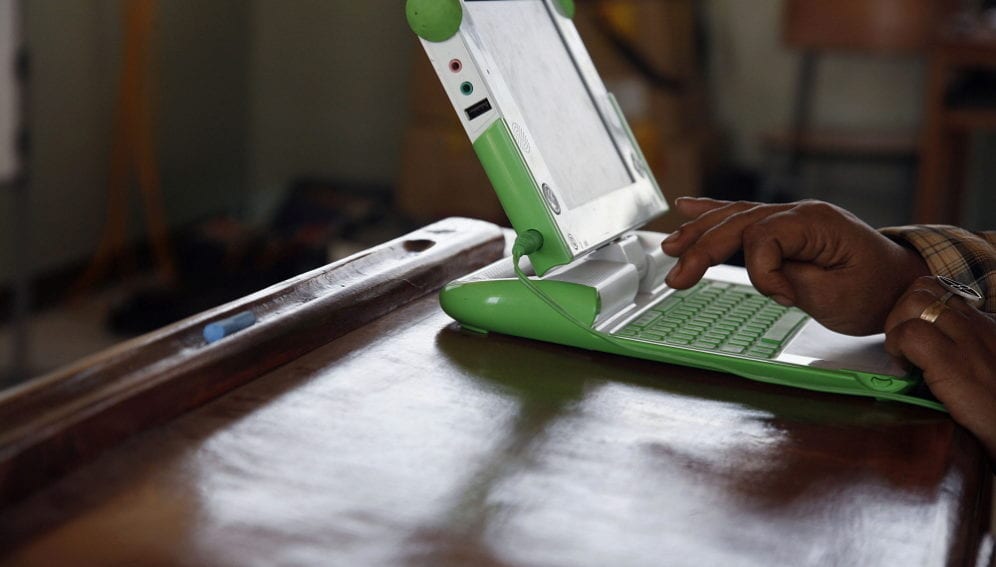By: Alison Frank
Send to a friend
The details you provide on this page will not be used to send unsolicited email, and will not be sold to a 3rd party. See privacy policy.
[OXFORD] There are many problems that need to be overcome before the full potential of online learning can be realised for refugees.
But solutions are already on the horizon, and some were presented at the Humanitarian Innovation Conference held at the University of Oxford, United Kingdom, last weekend (19-20 July).
The most obvious difficulty to online learning is access to the internet, which can be prohibitively expensive and very slow for those living in refugee camps, the meeting heard.
Overcoming the digital divide
So Neil Sparnon, a consultant with Jesuit Commons, a Catholic organisation that provides accredited and free-at-point-of-delivery higher education to marginalised people, leaned towards a more old-fashioned approach.
Their courses in ‘Liberal Arts’ and ‘Community Service Learning’ rely on a mixture of textbooks donated by publishers and face-to-face classroom learning, as well as online content and assessment provided by volunteers from US-based academic institutions.
Another solution is preloading the online course, for example onto a memory stick, so it can be used even with no internet access.
The team behind the online humanitarian training resource DisasterReady.org is using memory sticks and is also developing an app to allow users to access learning materials and complete coursework offline, then upload their coursework next time the user’s device is connected to the internet.
Barbara Moser-Mercer, professor from the University of Geneva, who conducted a case study to investigate the challenges of MOOCs (massive open online courses) in a refugee context, also had to develop offline solutions, such as putting video lectures on a USB memory stick.
Ultimately, Moser-Mercer’s solution for making MOOCs accessible to refugees was to create solar-powered learning hubs — originally built from old shipping containers, now from recycled materials.
Up to ten users can access online courses at once from these hubs and the University of Geneva has now partnered up with Kenyatta University, Kenya, to offer online courses at the Dadaab refugee camp through them.
Local context
Speakers at the meeting emphasised the importance of the local context: courses cannot just be “parachuted in”, but need to be “taken over locally”, said Moser-Mercer.
For example, MOOCs commonly require a level of English that refugee populations just do not have; courses often have to be translated into the local language.
In addition to technological and linguistic challenges, cultural differences have to be taken into account.
For example, respect for the authority of teachers makes it difficult for refugee learners to accept peer evaluation, and they may not know how to assess their peers’ work, the meeting heard.
It can also be challenging to recruit women for MOOCs and other forms of online-assisted learning, but Moser-Mercer said that offering free transportation and a free meal to learners (all for the cost of “a bad coffee at The University of Geneva”) makes a big difference. As does providing safe environments for study — such as the learning labs; ensuring that women form a significant proportion of the students; and holding up women’s success stories as examples to other women.
Such success stories are not difficult to find. Moser-Mercer notes that 100 per cent of their female students are on target in their learning.














